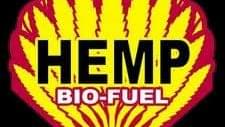
The ugly reason why hemp is illegal
Published on 6/30/12
In 1901, Andrew Mellon (and his brother Richard) started an oil company in Texas called Gulf Oil. They wanted to drill in Kuwait but the British were in control - at that time. So, Gulf Oil appealed to the U.S. government and this is where it gets disturbing.
You see - Andrew Mellon gave up his position as Treasury Secretary of the U.S. (1921-1932) to become U.S. Ambassador to Britain (1932-1933). Naturally, as he traveled to Great Britain - he would bring up the subject of Gulf Oil's interest in Kuwait. Just two years later, in 1934, British Petroleum and Gulf Oil struck a 50-50 deal and in 1938, struck oil!
The hidden agenda gets worse
In 1930, while Commissioner of the U.S. Treasury Department, Andrew Mellon appointed Harry Anslinger as the first Commissioner of the Federal Bureau of Narcotics. Many political experts see Anslinger and his campaign against marijuana as a secret agenda to eliminate hemp as an industrial competitor. When you follow the money - everything gets a little clearer.
In the 1920's and 30's, the DuPont Petrochemical Company (heavily financed by Andrew Mellow) was making similar advances with oil - instead of hemp. DuPont went on to become a leader in the development of Rayon fiber (synthetic fabrics), paint, synthetic rubber, plastics and other (toxic) chemicals. Clearly, Andrew Mellon had a vested interest in destroying the hemp industry.
By the way, Andrew Mellon became one of the wealthiest people in the United States. In fact, while serving as Secretary of the U.S. Treasury Department, his wealth peaked at around $300 - $400 million by 1929 -30. Andrew Mellon, John D. Rockefeller, Henry Ford and many other industrialists (of the early 1900's) would stop at nothing to kill the hemp industry. It's time to re-discover the power of hemp to heal the world.

